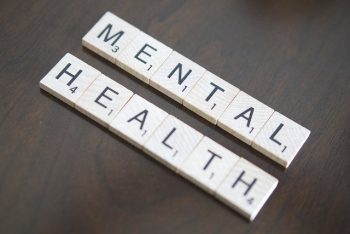Mental Health in the Netherlands Posted by Karoly Molina on Aug 16, 2017 in Dutch Vocabulary
I wrote before about going to the huisarts or the doctor when it comes to a regular cold or fever. Today’s post focuses on a more serious matter, but one that affects many people: mental health.
According to the Trimbos Instituut, about 20% of Dutch adults suffer from depression during their lifetime and 13% of mothers suffer from postpartum depression. In 2011, 1,1 million people in the Netherlands were reported to have some sort of anxiety disorder, and that number reflects only the reported cases (according to Volksgezondheid en zorg).
So what can you do and what do you say if you need some extra help and you are living in the Netherlands?
Who can you ask for help?
So you know something is off and you want to ask for help. The first person you need to visit is your huisarts or general practitioner. For insurance purposes, this is the first point of contact. You need to make an afspraak to talk to your doctor about what you are feeling and experiencing. The doctor will determine what the next steps for you will be.
Usually, your huisarts will refer you to the Praktijkondersteuner Huisarts – Geestelijke Gezondheidszorg or POH-GGZ which roughly translates to mental health caregiver. This is a person who is a type of counselor and usually gives appointments at the same place your doctor is. This person will talk to you about what you are feeling and give you some tools to deal with your situation. If the POH-GGZ thinks that your situation requires a more specific type of health, for example from a psychiatrist or psychiater, then he/she will refer you to one.
In the following video, a doctor explains the role of the POH-GGZ.
https://youtu.be/N-LZkIS7dEk
How do you ask for help?
Just like when you go to see the doctor for a cough or a fever, you should prepare your Dutch vocabulary for the occasion. It is difficult to put into words (even in our native languages) what we may feel when we are depressed or have anxiety, but it is important to try to be clear with the huisarts.
A good first phrase to begin with is Ik voel me…. which means I feel.
Then comes the feeling words, which are always hard. If you are feeling depressed, you can say ik voel me depressief or ik voel me erg verdrietig. You might want to add here how the sadness is reflected: how is this feeling affecting your day-to-day activities. You should tell the doctor if you cry or huil.
The following is a list of ways you might be feeling and their equivalent in Dutch:
angry- boos
sad- verdrietig
stressed- spannened, gestressed
indifferent- onverschillig
nervous- nerveus
paranoid- paranoïde
scared-bang
disappointed- teleurgesteld
confused- verward
frustrated- gefrustreerd
Explaining how you feel in these type of situations might be difficult in any language, which is why it is important to keep to simple sentences. Ik voel…Ik ben…Ik heb…Ik wil.
In the following video, a man is explaining how he feels. Pay attention to the words he uses to describe how he feels, his symptoms and how this has affected his life.
https://youtu.be/UssDchRBoWA
If you are not feeling well, it is important to know you are not alone and you can get help. If you (or someone you know) needs immediate help, you can always dial 113 to talk to someone.

Build vocabulary, practice pronunciation, and more with Transparent Language Online. Available anytime, anywhere, on any device.




